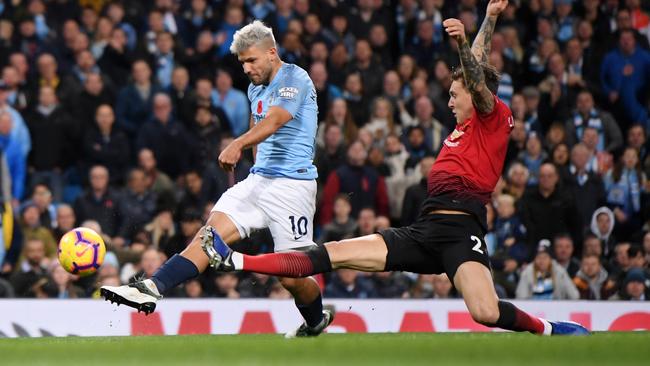Brexit plans for EPL an opportunity for homegrowns
EPL clubs will have to ensure that at least half of their first-team squads are made up of “homegrown” players under a Brexit plan.

English Premier League clubs will be obliged to ensure that at least half of their first-team squads are made up of “homegrown” players under drastic plans put forward by the FA to deal with Brexit.
The proposal, which would reduce the number of overseas players in each 25-man squad to 12, will be put to the 20 clubs this week. England’s top tier is under pressure to agree a deal with the FA for Brexit. If the clubs do not do so, they could face a nightmare “no-deal” scenario in which all EU players would have to fulfil the same criteria that non-EU players do now in order to get a work permit.
The clubs can have up to 17 overseas players in their squads under existing rules, but The Times has learnt that the FA’s plan would reduce that number by five. That would mean significant changes to a number of squads in the top flight, where 13 clubs have more than 12 overseas players in their first-team squads this season.
Five clubs, including Manchester City and Tottenham Hotspur, have the maximum number of foreign players while four more, including Chelsea and Liverpool, have 16.
In return for an agreement to boost the number of homegrown players in first-team squads, it is understood the FA would agree to give a “governing body endorsement” (GBE) for a work permit for every foreign player who gets a contract with a Premier League club.
It believes that would still allow top foreign talent to come to England and maintain the Premier League’s global popularity, yet boost the number of English players and remove all the red tape that surrounds the process.
There would, as with all Brexit changes, be a transition period until at least the end of 2020.
The government is believed to be aware of the proposal, as is the English Football League.
Whitehall has made it clear that if football’s stakeholders can agree a deal for what happens regarding overseas players after Brexit, then it will be happy to sanction the new rules.
A government spokesman said: “We recognise the need for sports, including football, to continue to access talent from the EU and globally and are in discussions with sports bodies about this.”
The Premier League and the FA have been poles apart on Brexit for months, with the league insisting that it wanted all overseas players to be given work permits regardless of the criteria that exist now. The number of international caps, the FIFA ranking of the country that the player represents, the transfer fee and the player’s wages can all determine whether a work permit is granted.
The FA has been determined that Brexit should be used as an opportunity to increase the proportion of English players in the Premier League without affecting clubs’ ability to bring in top-quality overseas stars. Even before the Brexit referendum, Greg Dyke, then the FA chairman, was looking at ways to reduce the number of what he referred to as “an awful lot of bog-standard foreign players”.
The proportion of English players starting top-flight matches was as low as 28 per cent only two weekends ago — 62 out of 220 players. The clubs will be given the full details of the proposal at a meeting of chairmen in London on Thursday. Brexit will be a difficult first challenge to negotiate for the successor to Richard Scudamore, the executive chairman, who is expected to be announced this week.
The FA is thought to be comfortable with the EFL’s existing arrangements, where seven of the 18-man match-day squad have to be homegrown, including at least one who has come up through the club’s academy.
A cut in the number of foreign players would mean English players becoming more valuable in terms of transfer fees. Clubs would also be forced to use their English players more often — for example none of Chelsea’s seven homegrown players featured in the starting line-up against Everton and it has been suggested that the club is only holding on to Victor Moses and Gary Cahill to fulfil their homegrown quota.
The Premier League stressed the contribution that European players have made to the competition since restrictions on numbers were removed in 1995 by the Bosman ruling. It said: “Like many organisations dependent on a combination of domestic and international talent, we are waiting to better understand what the political and regulatory landscape will be after the UK leaves the European Union.
“Access to talented footballers from Europe has played a key part in the growth of the Premier League, with attendance and global interest increasing as high-quality foreign players have taken their place in the competition with the best British and Irish players.”
The EPL could vote to introduce video assistant referees next season at its meeting on Thursday.
The 20 clubs will receive a presentation from the Premier League and Professional Game Match Officials Limited about the testing that has been done on video assistant referees (VAR) this season, which will lead to a discussion and a possible vote.
The Times


